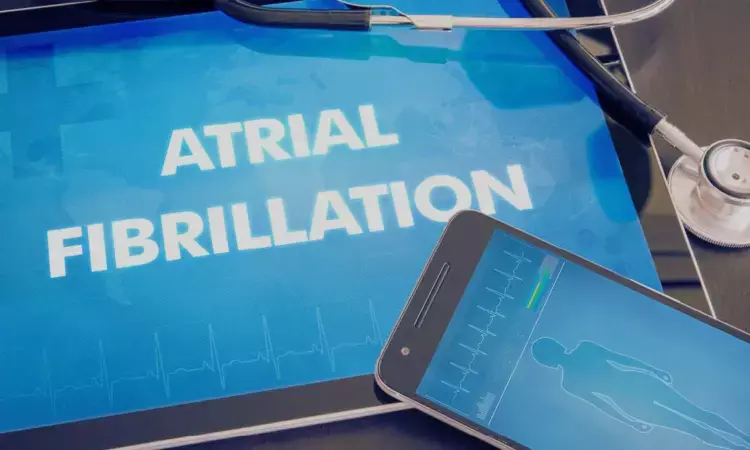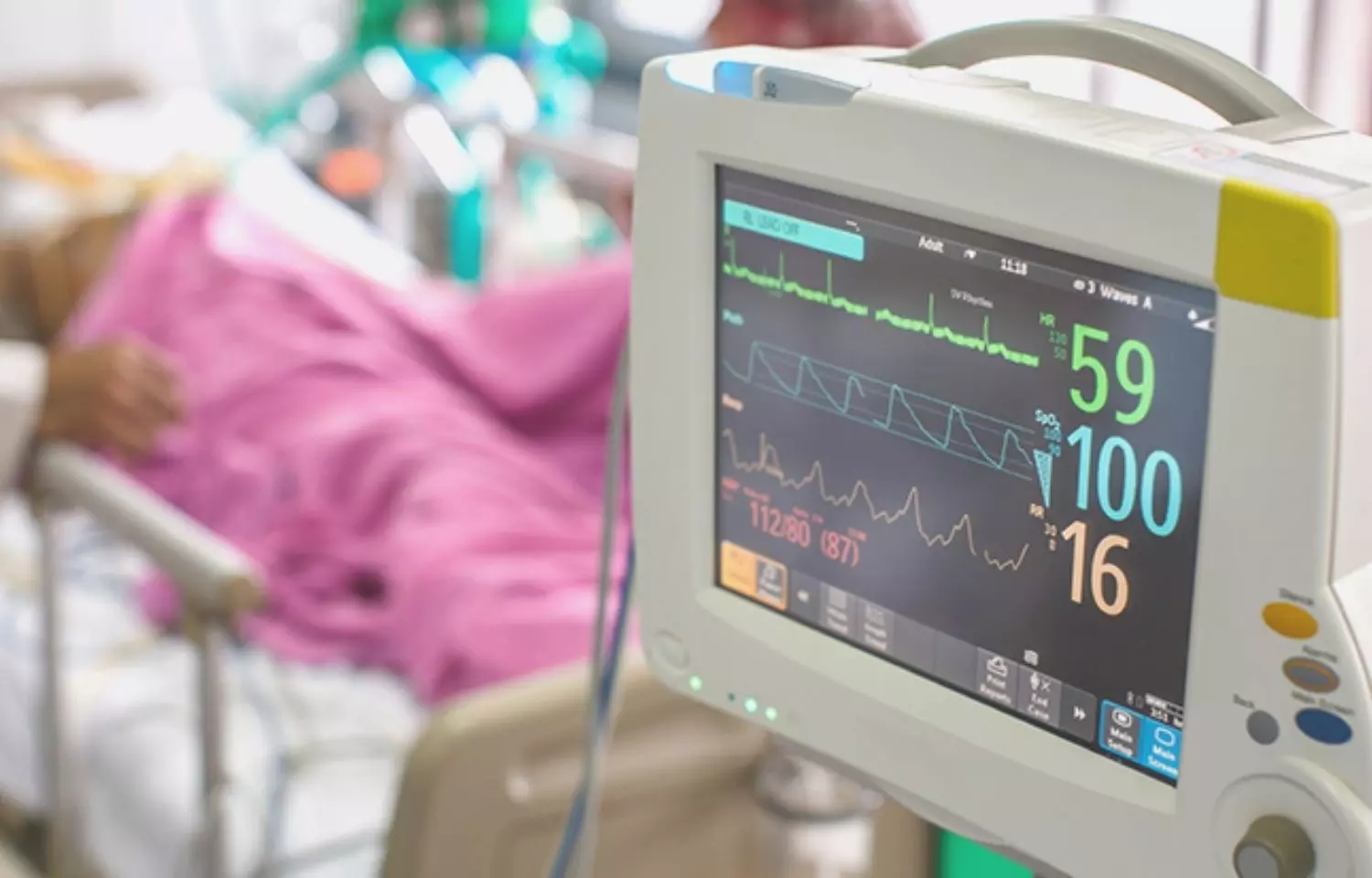- Home
- Medical news & Guidelines
- Anesthesiology
- Cardiology and CTVS
- Critical Care
- Dentistry
- Dermatology
- Diabetes and Endocrinology
- ENT
- Gastroenterology
- Medicine
- Nephrology
- Neurology
- Obstretics-Gynaecology
- Oncology
- Ophthalmology
- Orthopaedics
- Pediatrics-Neonatology
- Psychiatry
- Pulmonology
- Radiology
- Surgery
- Urology
- Laboratory Medicine
- Diet
- Nursing
- Paramedical
- Physiotherapy
- Health news
- Fact Check
- Bone Health Fact Check
- Brain Health Fact Check
- Cancer Related Fact Check
- Child Care Fact Check
- Dental and oral health fact check
- Diabetes and metabolic health fact check
- Diet and Nutrition Fact Check
- Eye and ENT Care Fact Check
- Fitness fact check
- Gut health fact check
- Heart health fact check
- Kidney health fact check
- Medical education fact check
- Men's health fact check
- Respiratory fact check
- Skin and hair care fact check
- Vaccine and Immunization fact check
- Women's health fact check
- AYUSH
- State News
- Andaman and Nicobar Islands
- Andhra Pradesh
- Arunachal Pradesh
- Assam
- Bihar
- Chandigarh
- Chattisgarh
- Dadra and Nagar Haveli
- Daman and Diu
- Delhi
- Goa
- Gujarat
- Haryana
- Himachal Pradesh
- Jammu & Kashmir
- Jharkhand
- Karnataka
- Kerala
- Ladakh
- Lakshadweep
- Madhya Pradesh
- Maharashtra
- Manipur
- Meghalaya
- Mizoram
- Nagaland
- Odisha
- Puducherry
- Punjab
- Rajasthan
- Sikkim
- Tamil Nadu
- Telangana
- Tripura
- Uttar Pradesh
- Uttrakhand
- West Bengal
- Medical Education
- Industry
Asymptomatic Bradyarrhythmias may not require any treatment including pacemaker therapy: JAMA

A groundbreaking post hoc analysis of the Implantable Loop Recorder Detection of Atrial Fibrillation (AF) to Prevent Stroke (LOOP) trial has unearthed a previously underestimated prevalence of bradyarrhythmias in individuals aged 70 and above with cardiovascular risk factors. The study concluded that one in five individuals over 70 years old with cardiovascular risk factors may have bradyarrhythmias when subjected to long-term continuous monitoring for AF.
The study results were published in the journal JAMA Cardiology.
Growing attention is directed towards heart rhythm monitoring and technologies aimed at identifying subclinical atrial fibrillation (AF), potentially resulting in the inadvertent discovery of bradyarrhythmias. Hence, researchers conducted a Post Hoc analysis of the LOOP randomized trial to investigate the impact of long-term continuous monitoring for atrial fibrillation (AF) using an implantable loop recorder (ILR) compared to standard care across four sites in Denmark.
Between January 2014 and May 2016, the trial enrolled 6004 participants, all aged 70 or older, with conditions such as hypertension, diabetes, heart failure, or prior stroke. The focus was on evaluating bradyarrhythmia diagnoses, pacemaker implantations, syncope events, and sudden cardiovascular deaths over a median follow-up period of 65 months.
Findings:
- Intriguingly, the ILR screening group, comprising 1501 participants, exhibited a staggering 6.21-fold increase in bradyarrhythmia diagnoses compared to the control group (4503 participants), where only 3.8% received such a diagnosis.
- Significantly, a large proportion of bradyarrhythmia cases in the ILR group (79.8%) were asymptomatic, highlighting the potential value of continuous monitoring in capturing silent cardiac irregularities.
- The most prevalent types of bradyarrhythmias identified were sinus node dysfunction and high-grade atrioventricular block. Age, male gender, and a history of prior syncope were identified as risk factors associated with bradyarrhythmias.
- Notably, the ILR screening group experienced a noteworthy increase in pacemaker implantations (4.5%) compared to the control group (2.9%).
- However, there was no discernible difference in the occurrence of syncope or sudden cardiovascular death between the two groups.
- Bradyarrhythmias, identified through continuous monitoring, were found to be correlated with subsequent syncope, cardiovascular death, and all-cause mortality.
- Crucially, the impact of bradyarrhythmia on these outcomes remained consistent across both the ILR and control groups.
In conclusion, this study suggests that more than one in five individuals over 70 years old with cardiovascular risk factors may have bradyarrhythmias when subjected to long-term continuous monitoring for AF. The utilization of ILR screening significantly heightened the detection of bradyarrhythmias and led to more pacemaker implantations compared to standard care. While shedding light on this hidden aspect of cardiac health, the study underscores the need for comprehensive heart rhythm monitoring, offering invaluable insights for diagnostic and therapeutic considerations in managing cardiovascular health in the elderly.
Further reading: Diederichsen SZ, Xing LY, Frodi DM, et al. Prevalence and Prognostic Significance of Bradyarrhythmias in Patients Screened for Atrial Fibrillation vs Usual Care: Post Hoc Analysis of the LOOP Randomized Clinical Trial. JAMA Cardiol. 2023;8(4):326–334. doi:10.1001/jamacardio.2022.5526
BDS, MDS
Dr.Niharika Harsha B (BDS,MDS) completed her BDS from Govt Dental College, Hyderabad and MDS from Dr.NTR University of health sciences(Now Kaloji Rao University). She has 4 years of private dental practice and worked for 2 years as Consultant Oral Radiologist at a Dental Imaging Centre in Hyderabad. She worked as Research Assistant and scientific writer in the development of Oral Anti cancer screening device with her seniors. She has a deep intriguing wish in writing highly engaging, captivating and informative medical content for a wider audience. She can be contacted at editorial@medicaldialogues.in.
Dr Kamal Kant Kohli-MBBS, DTCD- a chest specialist with more than 30 years of practice and a flair for writing clinical articles, Dr Kamal Kant Kohli joined Medical Dialogues as a Chief Editor of Medical News. Besides writing articles, as an editor, he proofreads and verifies all the medical content published on Medical Dialogues including those coming from journals, studies,medical conferences,guidelines etc. Email: drkohli@medicaldialogues.in. Contact no. 011-43720751




